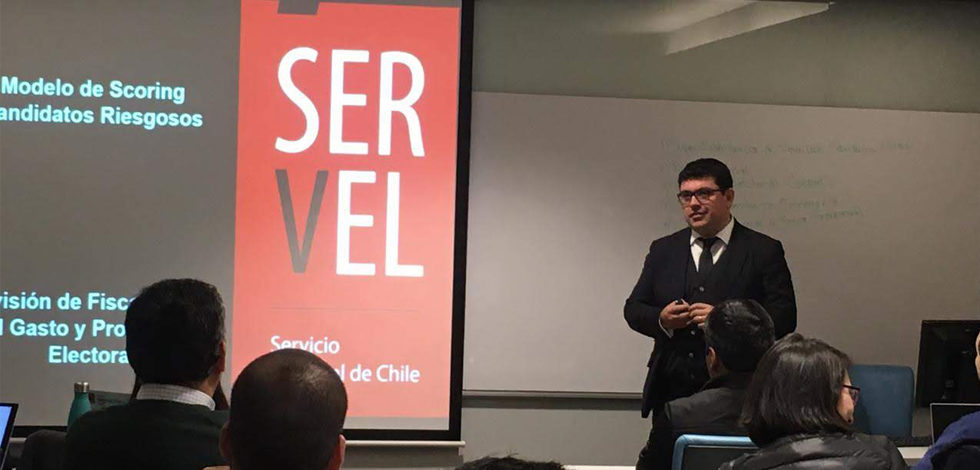
Within the framework of the digital transformation of the State, data science is an important tool to address strategic problems and priorities.

GobLab and FIC create an alliance to advance data science for the common good
November 14, 2019
Within the framework of the digital transformation of the State, data science is an important tool to address strategic problems and priorities. That is why the GobLab of the School of Government joins in partnership with the Faculty of Engineering and Sciences (FIC) to promote data science projects that have a social impact. The alliance contemplates implementation of projects of public interest as part of the Capstone Project of students of the Master in Data Science (MDS) of the FIC.
“From the School of Government we have a Data Science course for Public Managers where data science projects are formulated. Some of them have a lot of potential, but there are not always the resources to carry them out in public services, and less in the short term, due to the extensive budget process. On the other hand, the students of the Master in Data Science need to carry out an applied project to graduate, so they need access to specific problems and data. It is a relationship with a lot of synergy ”, explains the Director of the GobLab UAI, María Paz Hermosilla.
MDS students become data analysts for the Data Science for Public Managers course projects and thus help them to finalize the projects. They receive a description of the project by the public body, which includes the problem to be solved, the objectives to be achieved, the actions that the public body can do, the analyses deemed necessary, and an ethical diagnosis. Then, they should study the information and perform the analyses to try to meet the objectives. This may include a reformulation of all aspects of the project, since data science is a constant cycle of interactions, to see what is possible and to test hypotheses.
The first institutions benefiting from this alliance are the Electoral Service and the Department of Immigration, who participated in the first edition of the course thanks to the support of the Government Laboratory and the Civil Service.
Osvaldo Maldonado, former student of the Data Science course for Public Managers and senior public manager of SERVEL, says that in his case, “the volume of data that one has available today to perform the audit work, makes it absolutely necessary to seek tools that help to perfect this process, the project is oriented to optimize the analysis of data generated during the electoral campaign process, within the process of fiscalization of electoral financing and spending ”. He also adds that the use of data science is very relevant since “The use of tools that allow to move from an infinity of data to information, without a doubt helps to linearize the resources of better form as part of our control processes”.
For Rolando de la Cruz, Academic Director of the Master in Data Science, this alliance is based on collaboration “since on the one hand our students in the MDS graduation activity need to solve a problem in whose data solution is used and on the other the GobLab has problems that arise from its link with public institutions. Thus, some of our students can develop these projects, and in the process a link is generated between public institutions and the academy. ”
How can data science help public managers?
For Rolando de la Cruz “it is known that the institutions that have the greatest amount of data are public agencies. The processing and analysis of data, for example, for the development of public policies is a possible goal. There are already experiences in this regard in other countries. Public managers must move forward in the search to use data for decision making. The road is not easy, but the conditions are given to incorporate data science as it will be a fundamental pillar for the modernization of the State. ”
For Vartan Ishanoglu, modernization and processes advisor of the Department of Immigration, “with data science the same historical information serves as input to create prediction models that achieve a more finished and faster analysis than a manual process”.
María Paz Hermosilla concludes by saying that “from the UAI we want to contribute to society, and this is a concrete way to do it in a way that enhances both student learning and at the same time generates public value because real problems are being solved”.



